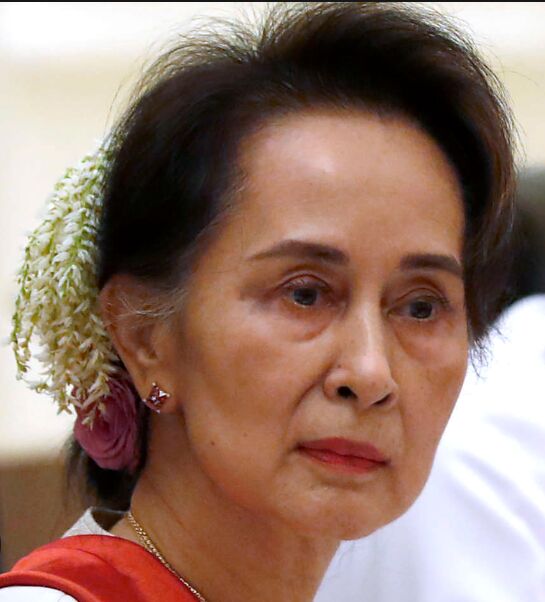Myanmar's Ousted Leader Aung San Suu Kyi Transferred to Government Building Amidst Growing Concerns for Her Health
Former Myanmar leader Aung San Suu Kyi has been moved from prison to a government building, highlighting concerns about her health and raising questions about her ongoing trial. The military coup in Myanmar has led to widespread displacement and conflict in the country.
Myanmar's former civilian leader, Aung San Suu Kyi, who was ousted in a military coup in 2021, has been transferred from prison to a government building, according to an official from her party.
Suu Kyi has only been seen once since her detainment, in grainy state media photos from a courtroom in the capital, Naypyidaw. The coup has thrown Myanmar into conflict, resulting in the displacement of over one million people, as reported by the United Nations. The official from the National League for Democracy, Suu Kyi's party, revealed that she has been moved to a high-level venue compound on Monday night.
The official also confirmed that Suu Kyi had met with Ti Khun Myat, the country's lower house speaker, and is likely to meet with Deng Xijuan, China's special envoy for Asian Affairs, who is visiting Myanmar. Another source from a political party stated that Suu Kyi has been relocated to a VIP compound in Naypyidaw.
Concerns about Suu Kyi's health have been raised since her detention, particularly during her trial in a junta court, where she was required to attend almost daily hearings. She has been sentenced to 33 years in jail on charges including corruption, possession of illegal walkie-talkies, and flouting coronavirus restrictions.
Human rights groups have strongly criticized her trial, viewing it as a sham designed to remove the popular leader from politics. In June 2022, Suu Kyi was moved from house arrest in Naypyidaw to a prison compound in another part of the capital, where she was denied her domestic staff and assigned military-chosen helpers.
This confinement is a stark contrast to the years she spent under house arrest during a previous junta, where she became a world-famous democracy figurehead. Despite the tarnishing of her international image due to her power-sharing deal with the military and her failure to address the persecution of the Rohingya minority, Suu Kyi remains highly popular in Myanmar.
However, disillusionment with Suu Kyi and her core principle of non-violence has led many democracy activists to resort to armed resistance in their struggle to remove military dominance from the country's politics and economy. The military cited alleged widespread voter fraud in the November 2020 elections as justification for the coup, which sparked massive protests and a violent crackdown.
Following the coup, numerous senior members of the National League for Democracy were jailed or forced into hiding. In March, Myanmar's junta-stacked election commission announced the dissolution of the NLD for failing to comply with a new military-drafted electoral law.
The junta has yet to announce a date for fresh elections that it had promised to hold. Since the coup, more than 3,800 people have been killed, according to a local monitoring group. The situation in Myanmar remains highly volatile, with ongoing conflicts and human rights abuses. The international community continues to closely monitor the developments and calls for a peaceful resolution to the crisis.




